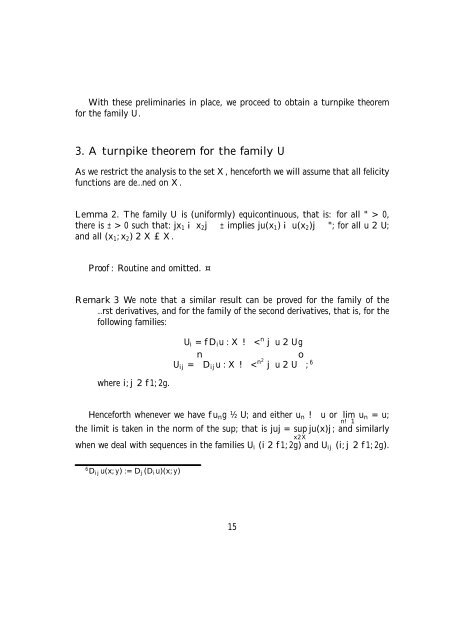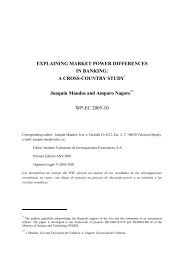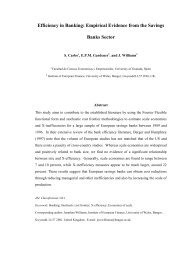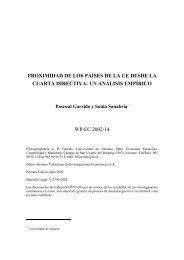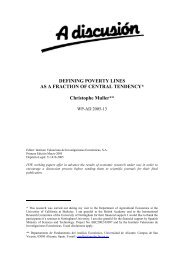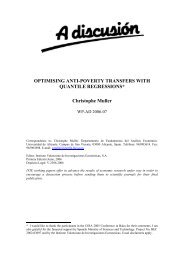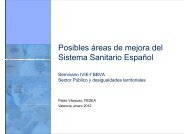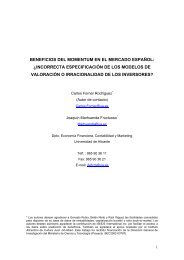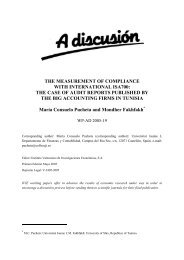You also want an ePaper? Increase the reach of your titles
YUMPU automatically turns print PDFs into web optimized ePapers that Google loves.
With these preliminaries in place, we proceed to obtain a turnpike theorem<br />
for the familyU.<br />
3. A turnpike theorem for the familyU<br />
As we restrict the analysis to the setX, henceforth we will assume that all felicity<br />
functions are de…ned onX.<br />
Lemma 2. The family U is (uniformly) equicontinuous, that is: for all " > 0,<br />
there is±>0 such that: jx 1 ¡x 2 j ± implies ju(x 1 ) ¡u(x 2 )j "; for allu2U;<br />
and all(x 1 ;x 2 ) 2X £X.<br />
Proof : Routine and omitted. ¤<br />
Remark 3 We note that a similar result can be proved for the family of the<br />
…rst derivatives, and for the family of the second derivatives, that is, for the<br />
following families:<br />
wherei;j 2 f1;2g.<br />
U i = fD i u:X ! < n j u 2Ug<br />
n<br />
o<br />
U ij = D ij u:X ! < n2 j u 2U ; 6<br />
Henceforth whenever we have fu n g ½U; and eitheru n !uor lim u n =u;<br />
n!1<br />
the limit is taken in the norm of thesup; that is juj=sup ju(x)j; and similarly<br />
x2X<br />
when we deal with sequences in the familiesU i (i 2 f1;2g) andU ij (i;j 2 f1;2g).<br />
6 D ij u(x;y) := D j (D i u)(x;y)<br />
15


